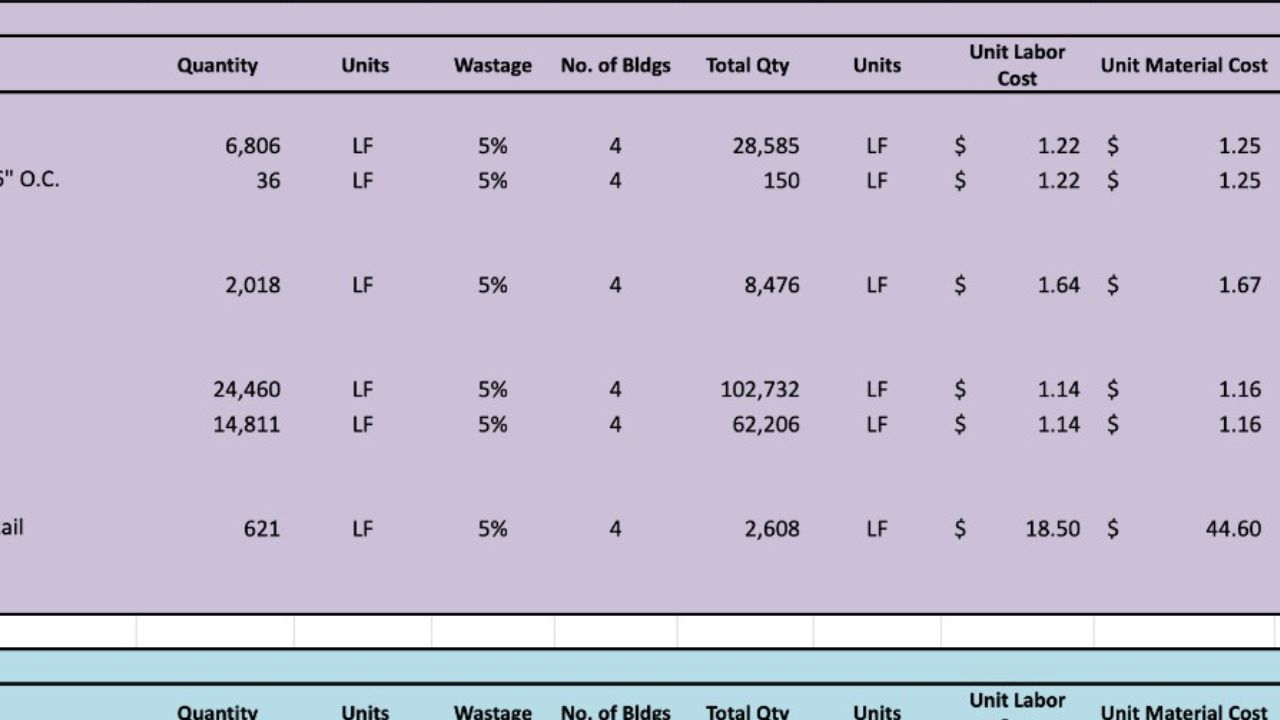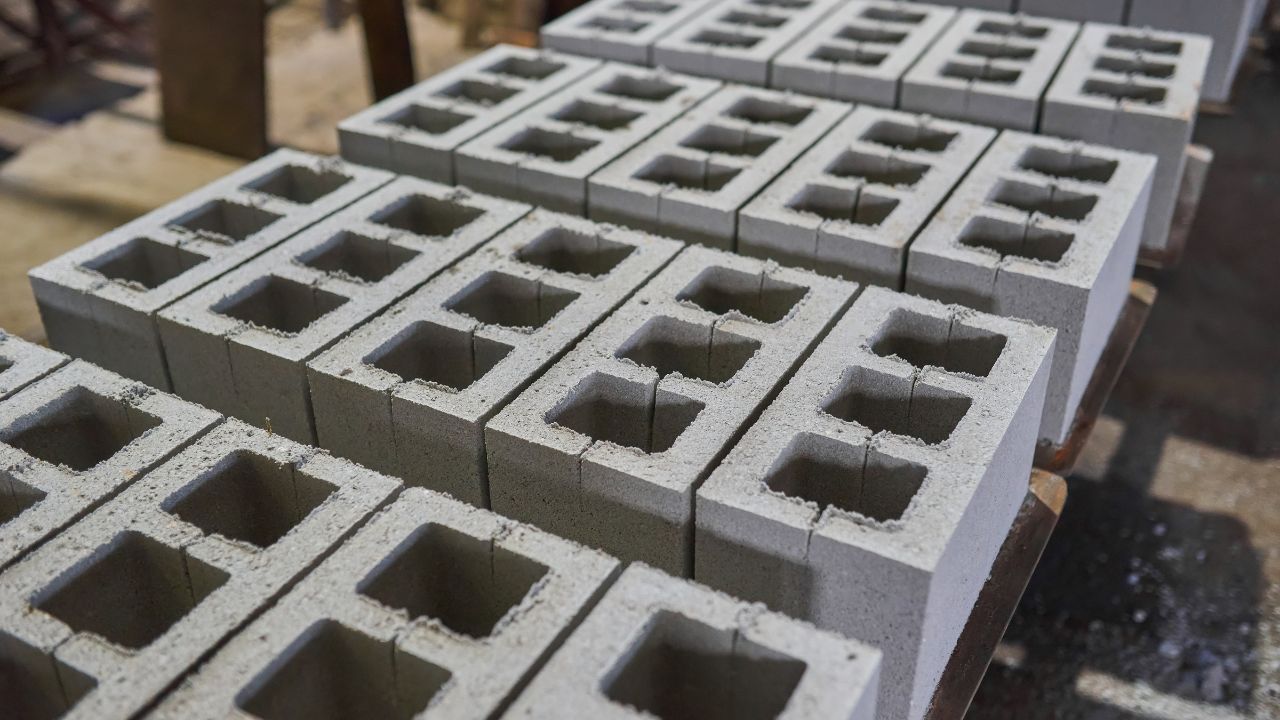Cmu Block Cost Estimator
CMU (Concrete Masonry Unit) blocks are a popular construction material known for their durability and versatility. Whether you’re planning to build a residential property, a commercial complex, or working on a DIY project, estimating the cost of CMU blocks is crucial. Accurate cost estimation ensures that your project stays within budget, and you have a clear idea of the expenses involved.
What Are CMU Blocks?
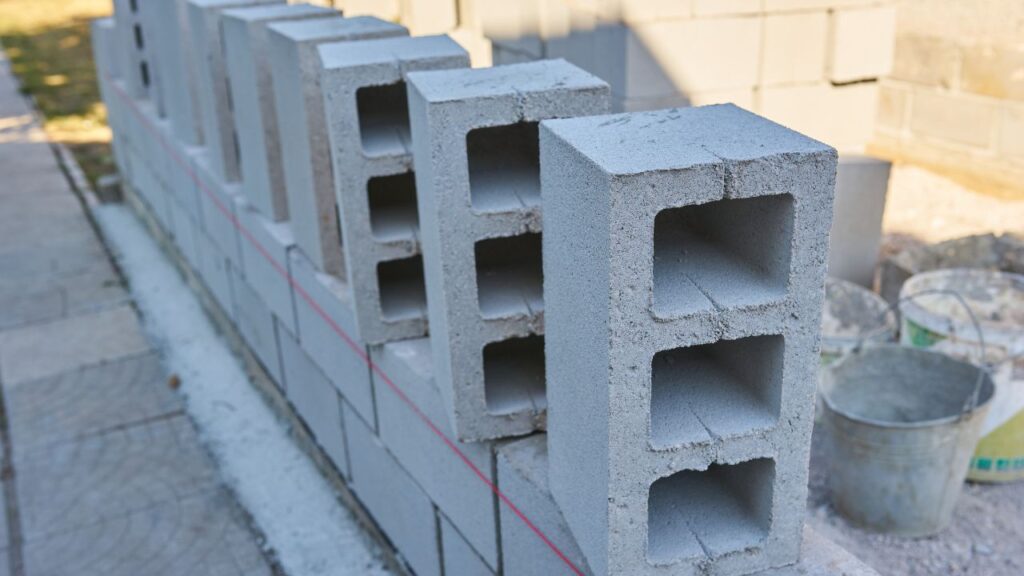
Before we dive into cost estimation, it’s essential to understand what CMU blocks are. CMU blocks are essentially concrete blocks, commonly used in construction. They come in various sizes, shapes, and designs, making them suitable for different applications in the construction industry.
Factors Affecting CMU Block Cost
The cost of CMU blocks can vary significantly due to several factors. It’s essential to consider these factors when estimating the expenses for your project:
Material and Quality
The type and quality of concrete used in the CMU blocks can greatly impact the cost. High-quality blocks tend to be more expensive but offer better durability and strength. On average, high-quality CMU blocks can cost between $4 and $6 per block, while standard ones range from $2 to $4 per block.
Dimensions and Shape
CMU blocks come in various dimensions and shapes. Some are standard, while others are custom-made. The dimensions you choose will directly affect the cost. For instance, larger or custom-shaped blocks may cost more. Prices can range from $2 to $5 per block based on size and design.
Location and Labor Costs
Local factors, such as location and labor costs, play a significant role. Labor costs can vary from one region to another, so it’s crucial to consider your project’s location. Additionally, transportation costs can influence the overall expense of CMU blocks. Labor costs can range from $25 to $50 per hour, depending on the location.
The Importance of Accurate Cost Estimation
Accurate cost estimation is the backbone of any construction project. It ensures that you have a realistic budget and can plan your project efficiently. Overestimating or underestimating the cost of CMU blocks can lead to financial issues and project delays.
Methods for CMU Block Cost Estimation
There are various methods for estimating CMU block costs, each with its advantages and limitations:
Manual Estimation
You can manually calculate the cost by considering the quantity of blocks required and their unit price. This method is suitable for small projects but can be time-consuming for larger ones. For manual estimation, you need to calculate the total surface area of walls, multiply it by the number of blocks per square foot, and then add the cost of mortar and accessories. This method allows for a detailed breakdown of costs.
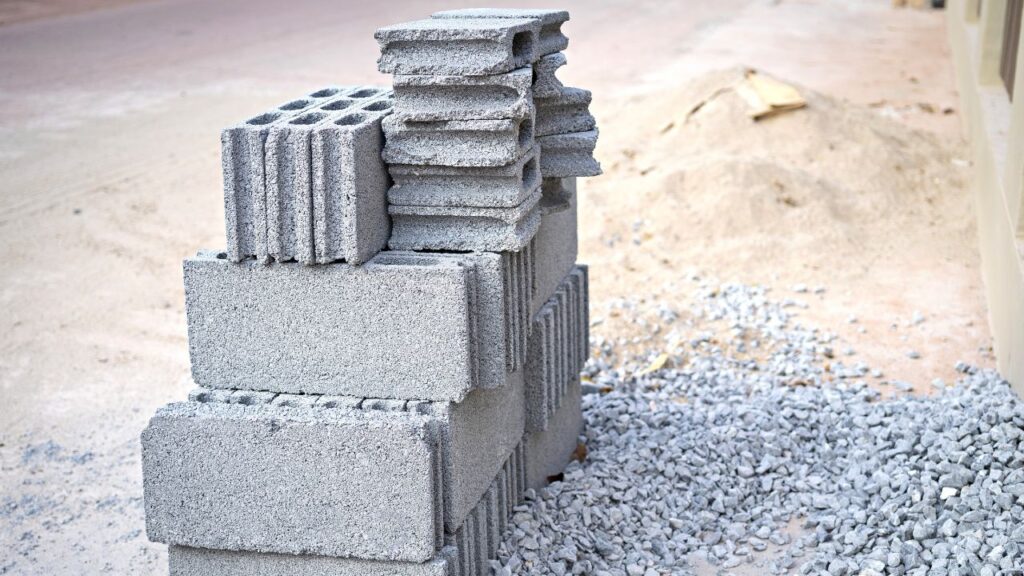
Online Calculators
Several online calculators and tools are available to help you estimate CMU block costs quickly. They take into account various factors and provide an accurate estimate. Online calculators can offer you a quick estimate based on the dimensions, location, and quality of CMU blocks you need. These tools are user-friendly and can save time compared to manual calculations.
Professional Consultation
For complex projects or when you’re unsure about the estimation, it’s advisable to consult with construction professionals. They have the expertise to provide precise cost estimates. Professionals can give you a detailed breakdown of expenses, considering all factors that influence the cost. This includes a thorough analysis of your project’s unique requirements, ensuring that no cost factors are overlooked.
Steps for Accurate CMU Block Cost Estimation
To ensure accurate cost estimation, follow these steps:
Calculate Surface Area
Determine the total surface area that requires CMU blocks. This includes walls, partitions, or any other application. Calculate the surface area in square feet, as this is a fundamental metric for estimating the number of blocks needed. The formula for calculating surface area is:
Get Concrete Block Cost Estimator
Estimate Florida consulting as a concrete block building cost estimator is here to allow you to achieve new levels of productivity and efficiency in budgeting and takeoff, giving your concrete contracting company the boost it needs to not only survive but profit in these difficult economic times.
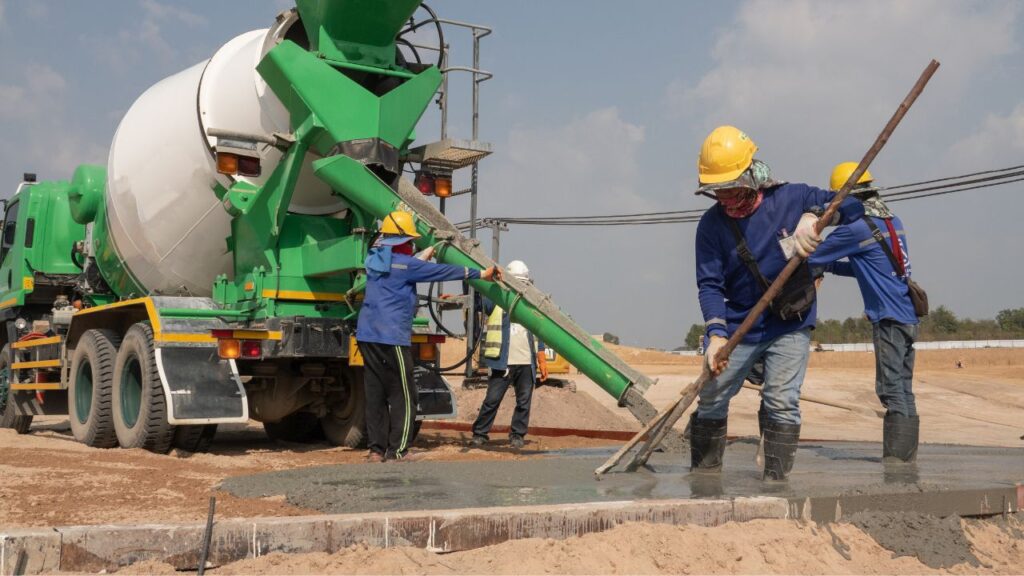
Determine the Required Blocks
Based on the surface area, calculate the number of CMU blocks needed. Remember to account for openings like windows and doors. This step involves multiplying the total square footage by the number of blocks per square foot. The formula for determining the required blocks is:
Account for Mortar and Accessories
Don’t forget to include the cost of mortar and any additional accessories required for the project. Mortar costs are typically estimated based on the number of blocks, and additional accessories like rebar or grout may be necessary. Ensure you get quotes for these materials and factor them into your estimation. Typically, the mortar cost can range from $30 to $50 for every 100 blocks, depending on the type and quality.
Cost Estimation Examples
Let’s explore cost estimation in different scenarios:
Residential Projects
For residential projects, the cost of CMU blocks typically includes the exterior walls and foundation. A typical single-story house may require around 10,000 to 15,000 CMU blocks, costing anywhere from $20,000 to $100,000, depending on factors like block quality, size, and labor costs. Additionally, you need to consider the cost of excavation and foundation work, which can range from $5,000 to $15,000.
Commercial Projects
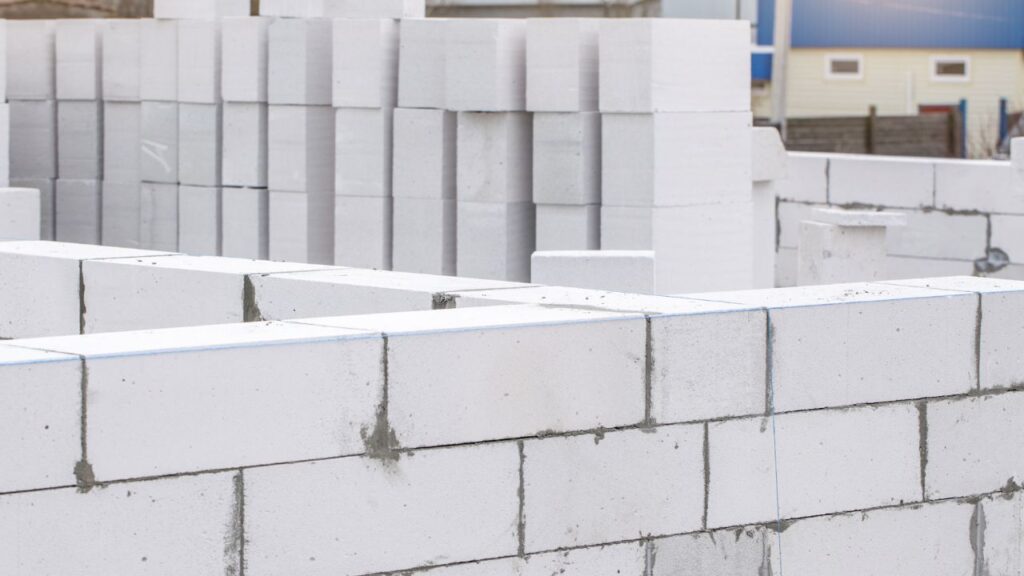
Commercial projects may involve more extensive use of CMU blocks, including load-bearing walls and partition walls. For a medium-sized commercial building, the CMU block cost can range from $100,000 to $500,000 or more, depending on the project’s scope and location. Complex commercial projects may require the services of engineers and architects, which can add an additional 10% to 15% to the total project cost.
DIY Projects
DIY projects often require fewer blocks, and individuals can choose to install the blocks themselves or hire professionals. A small DIY project, such as building a garden wall, may require around 500 to 1,000 blocks, costing approximately $1,000 to $5,000, considering standard CMU blocks and minimal labor costs. Keep in mind that DIY projects may require tools and equipment, which can add an extra $100 to $500 to the overall expenses.
Cost Optimization Tips
To keep your CMU block costs in check, consider the following tips:
Buy in Bulk
Purchasing CMU blocks in bulk can often lead to discounts, reducing your overall expenses. Buying in bulk can save you anywhere from 10% to 20% on the total cost. For a bulk purchase, the cost of CMU blocks may range from $2.00 to $5 per block, depending on the quantity and negotiation skills.
Choose Local Suppliers
Opt for local suppliers to minimize transportation costs and support your community. Local suppliers can also provide more competitive prices and faster delivery, saving you money on shipping. It’s essential to consider the location of suppliers when estimating costs, as transportation expenses can add an additional $100 to $600 to your budget.
DIY vs. Hiring Professionals
Evaluate whether you can take on some aspects of the project yourself to save on labor costs or if it’s more cost-effective to hire professionals. DIY can significantly reduce labor expenses, but it’s essential to have the necessary skills and time for the project. Hiring professionals may be more expensive, but it ensures quality work and reduces the risk of errors. Labor costs for professionals can range from $40 to $100 per hour, depending on the location and project complexity.
Challenges in CMU Block Cost Estimation
Estimating CMU block costs isn’t always straightforward. There are several challenges to be aware of:
Changes in Design
If your project’s design changes, it can affect the number and type of CMU blocks required, leading to cost adjustments. Changes in design can add extra costs, so it’s important to have a contingency budget. Typically, design changes can add 5% to 10% to the total project cost.
Hidden Costs
Hidden costs, such as excavation or unforeseen structural issues, can emerge during the project, impacting your budget. It’s wise to set aside at least 10% to 15% of your budget for unexpected expenses. Hidden costs can include foundation repair, which can range from $2,000 to $10,000, and structural reinforcements, which may cost $5,000 to $20,000 or more.
Inaccurate Estimations
Inaccurate estimations can result in financial strain, project delays, and compromises in quality. Ensure that you consider all factors and consult with professionals for a reliable estimate. Inaccurate estimations can lead to cost overruns ranging from 5% to 20%, causing financial strain and potential delays in project completion.
The Future of CMU Block Estimation
With advancements in technology, the accuracy of CMU block cost estimation is expected to improve. New tools and software will provide more precise estimates, simplifying the process for builders and homeowners alike. These tools will consider factors like project location, design changes, and hidden costs, making cost estimation even more reliable. Additionally, they may offer real-time cost updates and suggest cost-saving measures.
Conclusion
Accurate cost estimation is crucial for the success of any construction project. Understanding the factors that influence CMU block costs and using the right estimation methods will help you stay on budget and complete your project successfully. Remember that estimating CMU block costs is a complex process that requires attention to detail and professional guidance. Mastering cost estimation can result in substantial cost savings and successful project completion.
FAQs:
To calculate the surface area, measure the length and height of the walls or partitions where you plan to use CMU blocks. Then, multiply these dimensions to get the total square footage, which is essential for estimating the number of blocks needed.
The price of CMU blocks can vary significantly depending on factors like quality, size, and location. On average, you can expect to pay between $2 and $5 per block, but prices can be higher for larger, custom-shaped blocks.
Yes, online calculators can be used for complex projects, but it’s advisable to consult with professionals for the most accurate estimates. Professionals can provide a detailed breakdown of costs and consider project-specific factors.
Yes, some manufacturers produce eco-friendly CMU blocks that use recycled materials or have improved energy efficiency. These blocks may come at a slightly higher cost but offer environmental benefits. The cost of eco-friendly CMU blocks can range from $3 to $7 per block, depending on the manufacturer and location.
Thoroughly plan your project and account for potential contingencies in your budget. Regular site inspections can help identify and address hidden costs promptly, ensuring that your project stays within budget. It’s essential to allocate at least 10% to 15% of your budget as a contingency fund to cover unexpected expenses.
Process To Get Cmu Block Cost Estimate Report
Here I am going to share some steps to get a cmu block cost estimate report.
-
You need to send your plan to us.
You can send us your plan on info@estimatorflorida.com
-
You receive a quote for your project.
Before starting your project, we send you a quote for your service. That quote will have detailed information about your project. Here you will get information about the size, difficulty, complexity and bid date when determining pricing.
-
Get Estimate Report
We do cmu block cost estimating and prepare a detailed report for your project. At last you finalize the report and finish the project.
Google Reviews




